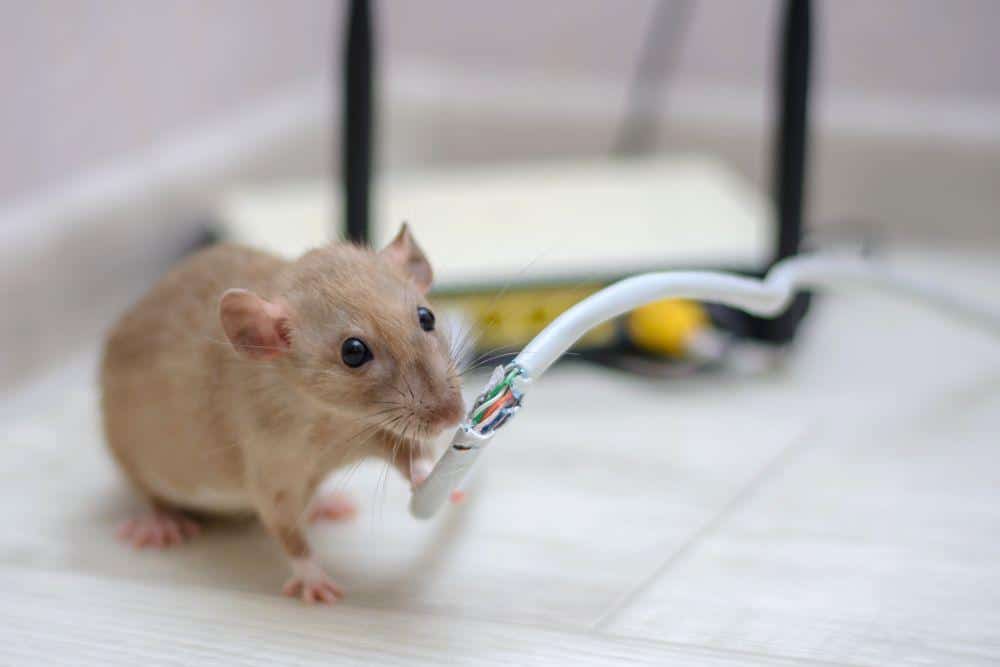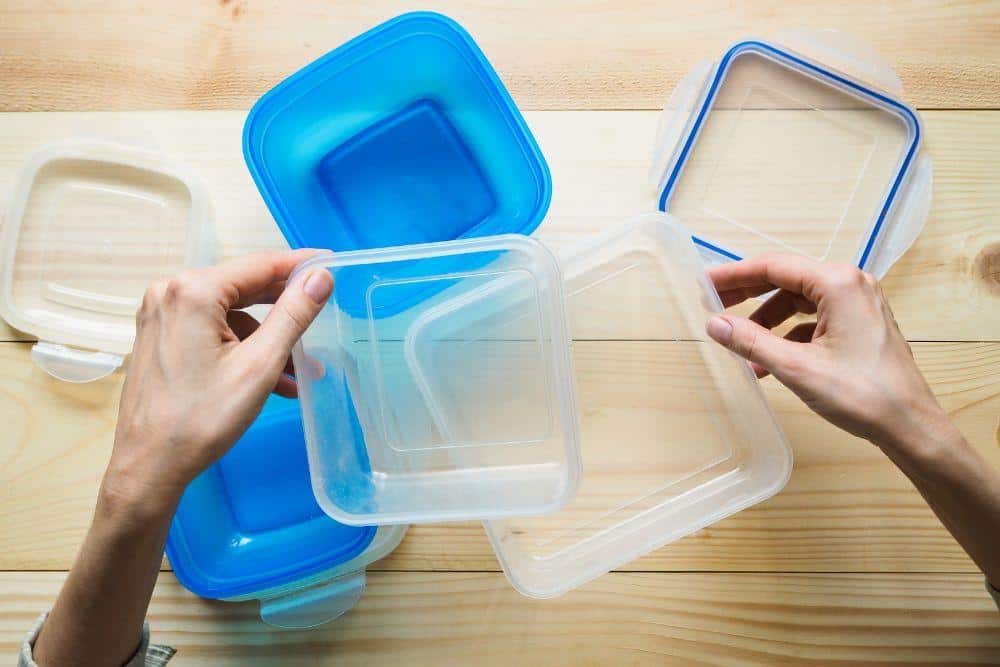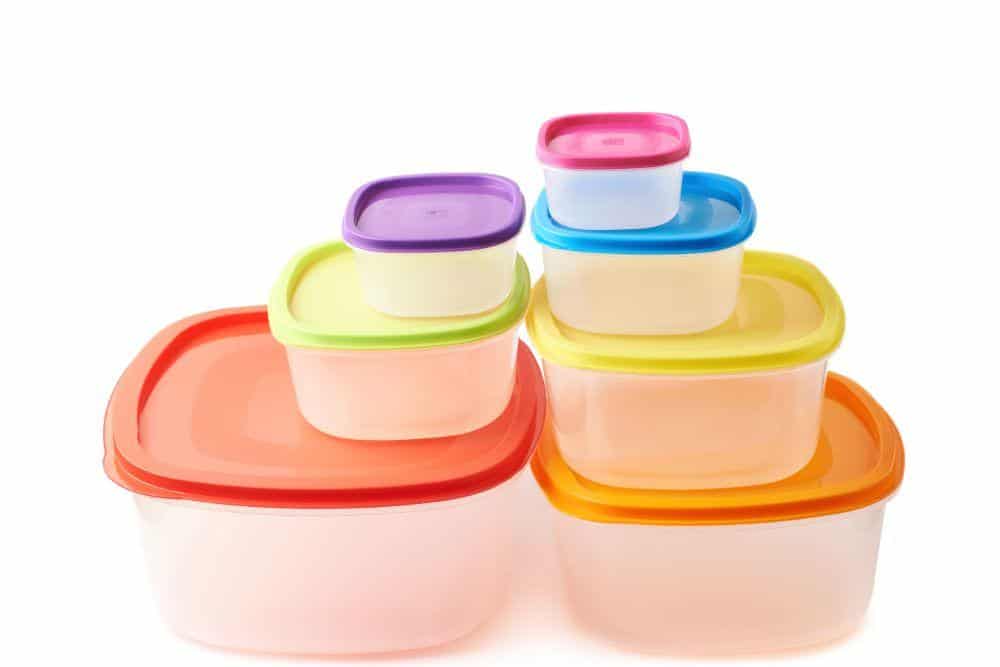Do you keep your food in a plastic container? And can mice chew through plastic storage containers? It may seem like this food container will keep pests like mice away, but you may be disappointed to find out that plastic containers are not mice-proof.
Mice can chew through plastic storage containers, especially if they're thin or soft. So it's unwise to store your food in plastic containers if you suspect a rodent infestation in your home.
In this article, you will learn which materials are mouse-proof and which are not and how to combat a rodent infestation in your home.
Several materials prevent mice from gnawing their way to your food. If you're dealing with a mouse infestation, switching up your food storage situation can protect your food and family from these little creatures.

Mice Can Chew Through Soft Plastic With Ease
No surprise, mice can't chew through metal. The list of things they can gnaw through is shocking, but metal is not on that list. For those dealing with a frustrating and chronic mouse problem, metal storage containers are the way to go.
Not only will the metal keep the mice out, but they'll also keep your food fresh. Use metal containers for cereal, chips, and other snack foods that mice would love to get into.
Glass is hands down one of the best alternatives to plastic containers for food storage. You can still see what is in each container and how much is left, making it convenient to take a visual inventory before grocery shopping. However, be mindful that if the lid consists of plastic, ensure that it's thick plastic to prevent mice from trying to make their way into the glass container.
And mice simply cannot chew through glass. For the most severe rodent problems, glass containers are an effective and long-lasting solution. Plus, they're easy to clean and maintain, as long as you don't drop them!
Can mice chew through plastic containers of any sort? While this article highlights how mice can chew through plastic, they can't get through all plastic. Heavy-duty plastic containers will stop mice, as they won't be able to chew through them, even when given a long amount of time.
You can use these hard and durable plastic containers for food storage. Buy the ones that are really hard and have no flexibility. The sides should be thick, and it's usually best if they aren't see-through.
These containers are the ones you do not want to use when dealing with a mouse problem. These pesky and clever creatures tend to work their way into the types of containers mentioned in this section.
As mentioned, mice can get through plastic storage containers. Thin or soft plastic is easy for them to gnaw their way through if they have a bit of time and easy access. If you can bend the plastic, it's probably weak enough for a mouse to chew through.

Soft Plastic Storage Containers are No Match for Determined Mice
Paper and plastic bags, like what chips come in, is a breeze for a mouse to penetrate. They gnaw through plastic and paper bags in no time, so these are the worst containers to store food in.
If you have a mouse problem, you should empty food of plastic and paper bags and put them in more sturdy storage containers to keep mice out.
Mice love cardboard, so avoid keeping this material around at all costs. If you keep items in cardboard boxes in a storage unit, it's best to upgrade to metal or hard plastic containers, as mice will quickly make their home in your cardboard boxes and destroy your belongings.
Rubber, much like soft plastics, can be destroyed by mice trying to get at something. Rubber is convenient for storage containers because they're flexible, long-lasting, and easy to clean. But if there are mice in your home, rubber is not a great barrier to protect your food.
Rubber containers are acceptable for packing lunches or storing food in the fridge, but for your pantry and cabinets, try to find more durable food containers.
Wood containers are lovely and aesthetically pleasing, but they're not mouse-proof. It will take a mouse a little longer than plastic or cardboard, but with enough time, it can chew right through wood containers and boxes.
Don't keep "emergency food" or items you won't access for a long time in wood boxes. It creates an excellent opportunity for mice to set up camp near one of these containers and get to what's inside.
Even if mice don't freak you out, you still shouldn't let them set up camp in your house. Keeping mice out of your house is for the health and safety of you and your family members. Below are hazards posed by mice living in your home.
When mice scurry around your home, they spread bacteria everywhere they go. Many mice that infiltrate homes are harmless, but some carry deadly viruses that can infect humans. The common mouse could potentially carry one of these viruses into your home:
These bacteria-carrying mice can quickly contaminate your food if they work their way into your food storage. You may keep emergency food in your pantry and cabinets in case of a snowstorm or if you like to stock up on certain kitchen staples.
If mice get into this stash, they can contaminate hundreds of dollars worth of food, and you may not even realize it until it's too late. And if you eat this contaminated food, you may contract one of the viruses mentioned above.

Store Food in Plastic Containers Where Mice Can’t Get to - Like Your Refrigerator
Mice can also cause allergic reactions. Many people have rodent allergies they aren't aware of because they don't spend much time around rodents.
But if they've infiltrated your house, you may start experiencing allergy symptoms like itchy eyes and throat, a fever, or inflammation. Even if the mice don't carry harmful diseases, they can still affect your family's health.
Aside from upgrading your food storage situation, a few other things can fight off the mice. Keep these tips in mind when dealing with a rodent infestation because some small changes can make a huge difference.
This tip is obvious but also the most important. Keep your kitchen clean! Even the smallest crumb can attract mice to your home, so cleaning after every meal is essential.
You should always clean with decent products, not just water and paper towels. Use an all-purpose cleaner whenever wiping down the counters or tables.
You've probably thought of this option already, but you can always set up mouse traps in your home. Some traps are fatal, while others catch the mice so you can release them later.
When dealing with a severe mouse infestation, you should hire a pest control professional to help you set up traps. But you can also buy them at a hardware store or online and place them around your home by yourself. A little peanut butter on the mouse trap always helps lure them out!
Below are the four most common types of traps you can use to control a rodent infestation in your home. Most traps aren’t particularly humane
If you live in an older house or apartment, you probably have some cracks and crannies throughout your home. It is normal but also an excellent opportunity for mice to let themselves in.
Plug these holes with tape or place traps in front of them. Experts also recommend cementing these areas or placing metal panels in front of them.
A classic tale of nature, cats and dogs can be your remedy to a mouse infestation. Mice are super smart and know how to scurry around behind our backs and when we're not around.
But dogs and cats add another layer of security they have to circumvent to get food. So having a cat, dog, or both can significantly reduce the number of mice who try to infest your home and chew through your storage containers.
Certain scents will drive mice away naturally. If you can incorporate these smells into your kitchen and home, it may eliminate your rodent problem. You can use candles, air fresheners, or oil diffusers to help these smells linger in your home and get mice out of your space!
Mice love cardboard - and the material forms part of enrichment for mice in captivity. So, do your best to dispose of cardboard boxes quickly if you don't want to attract mice. Don't let boxes sit in your house or next to your trash, as it will encourage mice to chew and explore the area.
If you use cardboard boxes to store things, like books or clothing, you should upgrade your storage boxes. Unfortunately, your food isn't the only thing at risk. So consider cardboard a beacon to mice and get rid of all of it. The same goes with baskets they can easily chew through.
Below are common signs that mice have come into your home, and you should probably call a pest control professional or set up mouse traps to combat the infestation.
Below are the answers to commonly asked questions about mouse infestations and food storage.
No, mice do not eat plastic, but as discussed, they can gnaw through it. But they do this to get food, and they don't eat the plastic.
Mice will absolutely chew through aluminum foil. Think about how easy it is to tear a piece of foil, so it's not that much of a deterrent. Some exterminators recommend balling up tin foil and placing it in holes to block mice, but this isn't the most effective solution.
Surprisingly, yes. These little rodents can even gnaw their way through the concrete. They can chew through concrete that did not fully cure, which is relatively common in old basements.
